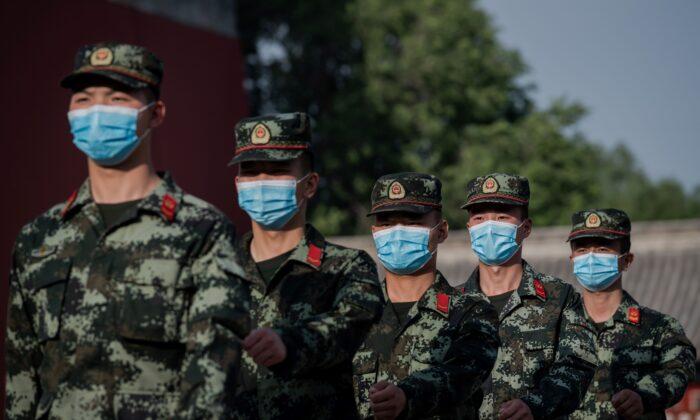Robert O’Brien, the national security adviser to President Donald Trump, and Christopher Wray, the director of the FBI, over the past two days highlighted the threat posed by the Chinese Communist Party (CCP), with both providing a glimpse into the administration’s latest efforts to counter the regime.
“The days of American passivity and naivety regarding the People’s Republic of China are over,” O’Brien said in Phoenix on June 24.
“America, under President Trump’s leadership, has finally awoken to the threat of the Chinese Communist Party’s actions and the threat they pose to our great way of life.”
O’Brien said the United States welcomed China into the World Trade Organization in 2001 with “vast concessions and trade privileges,” while downplaying “China’s gross human rights abuses” and turning “a blind eye to China’s widespread technology theft that eviscerated entire sectors of the American economy.”
“As China grew richer and stronger, we believed that the Chinese Communist Party would liberalize to meet the rising democratic aspirations of its people,” O’Brien said. “This was a bold, quintessentially American idea. It was born of our innate optimism and by the experience of our triumph over Soviet communism. Unfortunately, it also turned out to be very naive.”
O’Brien offered a list of Chinese activities that he said were aimed not only at repressing its own citizens, but influencing Americans. He made a point of saying he was not attacking the Chinese people, but the Chinese Communist Party.
Wray, meanwhile, revealed that the bureau currently has more than 2,000 active investigations that trace back to the CCP. He told Fox News that over the past decade, there has been a roughly 1,300 percent increase in economic espionage probes with links to the Chinese regime.The FBI director also accused the CCP of trying to interfere in U.S. politics and of spying on Fortune 100 companies—the top 100 companies in the country as ranked by their employees.
“There’s no country that presents a broader, more comprehensive threat to America’s innovation, to our economic security, and to our democratic ideas than China does,” he told the network on June 24.
Under Trump, the United States has imposed restrictions on U.S. semiconductor technology from going to Huawei and has limited the People’s Liberation Army’s ability to use student visa programs to place its officers in U.S. colleges and universities.
Author and China expert Gordon Chang said the United States is finally “becoming more realistic about China.”“They are starting to understand the fundamental challenge that Beijing poses to American society,” Chang told The Epoch Times.
“There’s always been the hope that China would integrate into the international system, but recently it’s made clear that its moving in the wrong direction—that it’s becoming hostile, provocative, belligerent, aggressive,” he said. “We need to hear an American official say that it is the policy of the United States to end the rule of the Communist Party.”
The Trump administration is the first U.S. administration to take seriously the extent of the CCP threat, Peter Huessy, president of GeoStrategic Analysis, a defense and national security consulting firm, told The Epoch Times.
The companies on that list include tech giant Huawei; mobile operators China Mobile and China Telecom; rail car manufacturer CRRC; video surveillance manufacturer Hikvision; shipbuilding companies CSIC and CSSC; aerospace company AVIC; defense company Norinco; and cloud computing and data-center company Inspur.
Frank Gaffney, former assistant secretary of defense for international security policy during the Reagan administration, told The Epoch Times that the Pentagon announcement “is a very significant development.”
“It’s shocking I think to the average American that we have the Chinese military industrial complex active in the United States of America,” he said. “One can only imagine what they’re doing here.”
Gaffney, who is vice chairman of the Committee on the Present Danger: China, said, “We can no longer ignore these very, very ominous indications of the malign intentions of the Chinese Communist Party toward the United States.”
Another concern is Huawei—the Chinese telecom giant that many in Washington view as a national security threat.
Washington is lobbying European and other allies to exclude Huawei as they upgrade to 5G networks. Huawei denies that it facilitates Chinese spying or is controlled by the ruling Communist Party.
Epoch Times reporter Isabel van Brugen and The Associated Press contributed to this report.






Friends Read Free